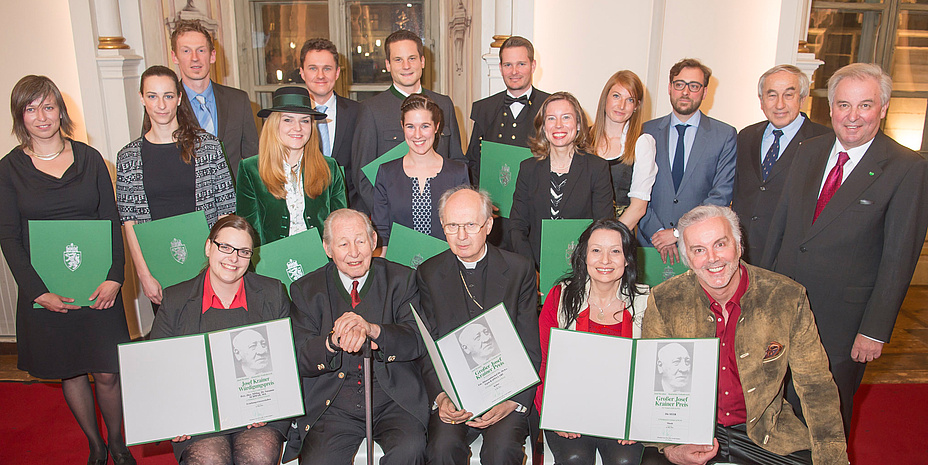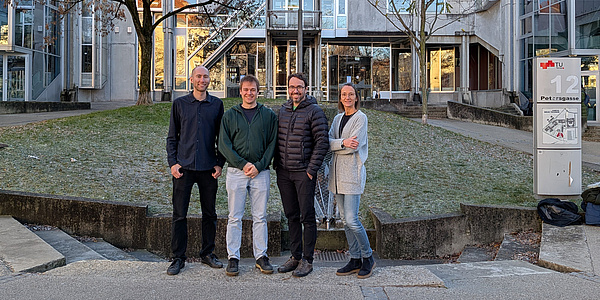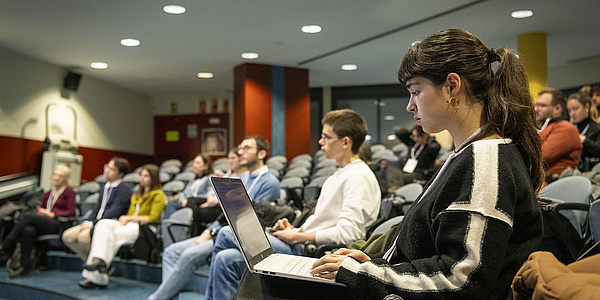On polynomials, indoor GPS and helium nanodroplets

Integer-valued polynomials
Though known about for a long time but little investigated, integer-valued polynomials are mathematical functions with special characteristics which have for many years simply been seen as computational tools. Since they became an independent research field of mathematics at the turn of the 20th century, knowledge about the unusual structure of sets of integer-valued polynomials has been steadily growing. In her doctoral thesis, Graz mathematician Roswitha Rissner has made substantial progress in solving two problems which have been around for a long time by examining Skolem properties of rings of integer-valued polynomials and the set of integer-valued polynomials on a matrix. Rissner travelled to France where she worked with the internationally recognised expert in the field, Jean-Paul Cahen, at Aix-Marseille University.Dipl.-Ing. Dr.techn. Roswitha Rissner: Integer-valued polynomials.
Indoor positioning in buildings
Thanks to smart phones, satellite-based localisation systems, such as GPS and Galileo, are now part of everyday life – at least those which work under an open sky. A reliable and affordable indoor positioning system is, however, an unsolved problem, but would be of immense importance for rescue workers or hospitals. In his doctoral thesis at the Signal Processing and Speech Communication Laboratory (SPSC Lab) at TU Graz, Paul Meissner has conducted research on a new approach to indoor positioning by using reflections of radio signals. The principle of the system was inspired by the animal world. Bats explore their environment in the dark by sending out ultrasound waves which are then reflected. Instead of ultrasound waves, the Graz researchers use radio signals. Paul Meissner’s doctoral thesis has already been awarded the Research Prize of the Association of German Engineers.Dipl.-Ing. Dr.techn. Paul Meissner: Multipath-assisted Indoor Positioning.
Superfluid helium nanodroplets
Physics makes use of so-called helium nanodroplets for the spectroscopic analysis of isolated, ultra-cold single atoms, molecules and clusters. These droplets consist of a few hundred to several 10,000 helium atoms and become superfluid at a temperature of 0.4 Kelvin. Novel, tailor-made aggregates can be synthesised in these “cold containers” and can be investigated in complete isolation from disturbing influences. In the framework of his doctoral thesis, Andreas Kautsch investigated the influence of this cold and chemically inert environment on transition metal atoms and clusters after excitation with photons. In his work, which he carried out at the Institute of Experimental Physics at TU Graz, he experimentally obtained and interpreted for the first time detailed information about the influence of the droplet on the electronic excitations and relaxation mechanisms of chrome and copper atoms as well as their positions in the drop.Dipl.-Ing. Dr.techn. Andreas Kautsch: Photoinduced Dynamics of Transition Metal Atoms and Clusters in Helium Nanodroplets. Roswitha Rissner and Paul Meissner are continuing their research at the Institute of Analysis and Number Theory and the SPSC Lab, TU Graz, respectively. Andreas Kautsch is now employed at Anton Paar, who are specialists in measurement technology.
Kontakt
Communications and Marketing
Rechbauerstraße 12
8010 Graz, Austria
Tel.: +43 316 873 6066; 6006
Mobile: +43 664 60 873 6066; 6006
<link int-link-mail window for sending>susanne.eigner@tugraz.at




